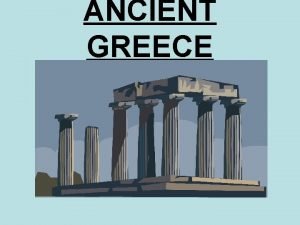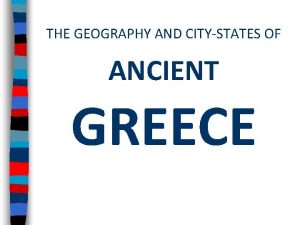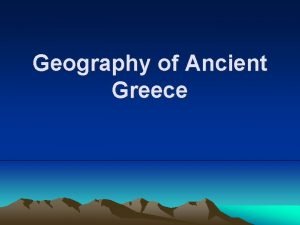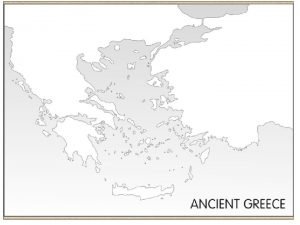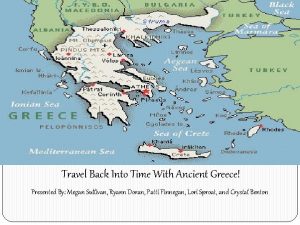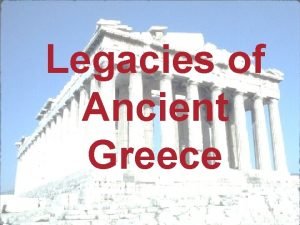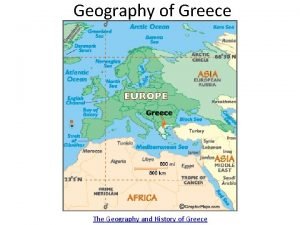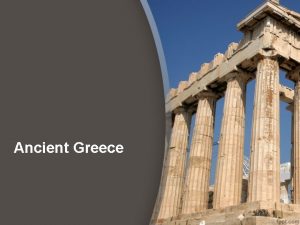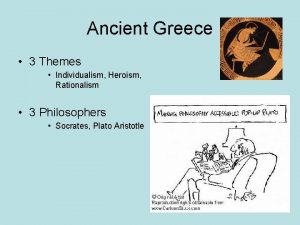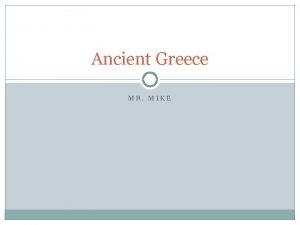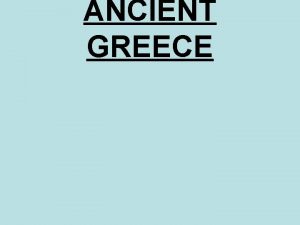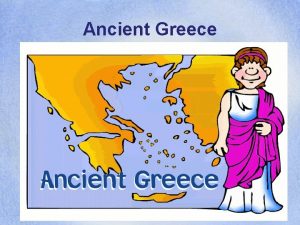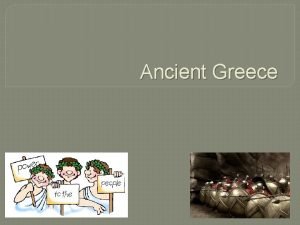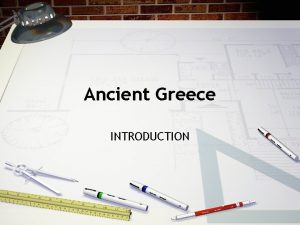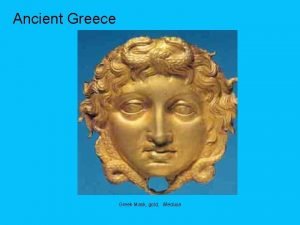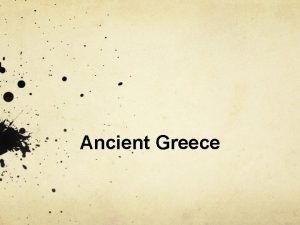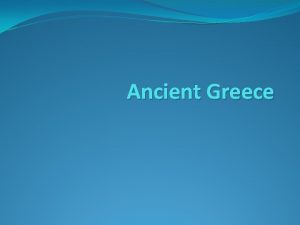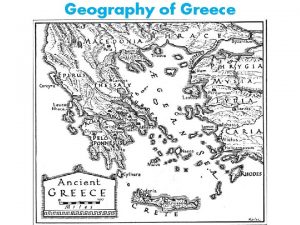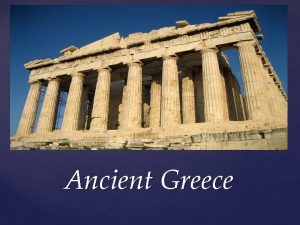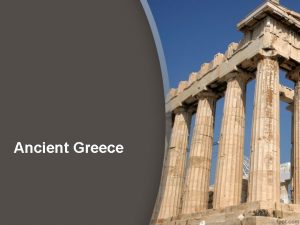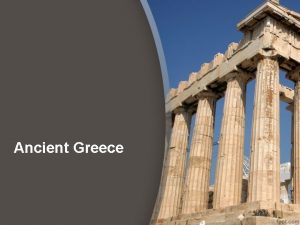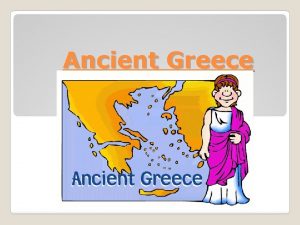ANCIENT GREECE I Geography Shapes Greek Life A





















- Slides: 21

ANCIENT GREECE

I. Geography Shapes Greek Life

A. LOCATIONGreece is located in Southern Europe along the Mediterranean Sea.

B. Importance of its Location Because of the seas, Sea travel, trade, and fishing were very important to the Greeks.

C. The Land Most of Greece is covered by rugged Mountains.

D. Impact of the Land The mountains divided the Greeks into separate communities. A polis or citystate is what these separate communities became known as.

II. The City-States A. Similarities- the Greek language, and their religious beliefs (Many Gods). They believed in the same gods, and believed that their gods had human characteristics.

B. Differences- Government & Way of Life Forms of Government in City-States Monarchy- Rule by a King Aristocracy- Rule by the “elite” Oligarchy- Rule by an “elite” few Democracy- Rule by the people Tyrants- Rule by a powerful individual

III. Sparta vs Athens

A. Sparta -was part Oligarchy & Monarchy -was an extremely “War-Like” Society -Spartans put Sparta before themselves -All Education was geared towards war -Boys were taken from their homes at age 7 and trained to be a soldier.

Sparta Continued: -Women COULDN’T participate in the Gov’t, but they had MORE rights than most in Ancient Greece. -Goal of Spartan Women: Have a lot of healthy children! (future soldiers or “soldier makers”)

“The Spartan Way of Life” -Tough Hard Life, Taught to do without luxury! -Spartans valued duty, strength, & discipline OVER freedom, individually, and the arts. -This resulted in one of the most power armies the world has ever seen!

B. Athens: -Government went from an aristocracy to a democracy. Thus Athens is said to be the “Cradle of Democracy”. -It was a “Direct Democracy” since the citizens made all of the decisions directly. -It was a “Limited Democracy” since not

Athens continued: -It was a society that stressed an individual should be “Well-Rounded”! -As a result: Education, the Arts, and Military strategy were ALL important. -Philosophers like Socrates, Plato, and Aristotle lived here. -The theater, great architecture, and wonderful sculptures developed here.

Ancient Greek Theater

The Parthenon

Nike: The Goddess of Victory was created around 203 BC.

-Athenian Power: Athens had a powerful Navy!

IV. The Persian Wars A. The Persian Empire (today Iran) fought the Greek city-states twice (490 BC & 480 BC) B. Both Times the Greeks would rally and push the Persians back. C. The power of Athens grew after these victories over the Persians.

V. The Peloponnesian War A. A tense rivalry developed between Sparta & Athens. B. Sparta declared war on Athens in 431 BC, Athens had the stronger navy, Sparta had the stronger army. C. Other city-states picked sides and joined in the fight.

Peloponnesian War Continued: D. By 401 BC, Athens was forced to surrender to Sparta. E. This long lasting war between the city-states would weaken ALL of them including Sparta & Athens when it was over.
 Geography shapes greek life
Geography shapes greek life Geography of greece
Geography of greece Ancient greece geography
Ancient greece geography Landforms of ancient greece
Landforms of ancient greece Describe the geography of ancient greece
Describe the geography of ancient greece Geography of ancient greece
Geography of ancient greece Organic and geometric shapes
Organic and geometric shapes Blank map of greece to label
Blank map of greece to label Where was ancient greece located
Where was ancient greece located The legacy of ancient greece chapter 31 answers
The legacy of ancient greece chapter 31 answers A physical education teacher in athens is called
A physical education teacher in athens is called Ancient greek legacies
Ancient greek legacies Where was sparta located
Where was sparta located Ancient greece stations
Ancient greece stations Legacies of ancient greece
Legacies of ancient greece Classic greek instrument
Classic greek instrument What did the greeks value
What did the greeks value In what continent is greece located?
In what continent is greece located? Balkan peninsula ancient greece
Balkan peninsula ancient greece Why was cyrus considered a fair ruler
Why was cyrus considered a fair ruler Why did the tyrants fall out of favor
Why did the tyrants fall out of favor Individualism in the school of athens
Individualism in the school of athens
